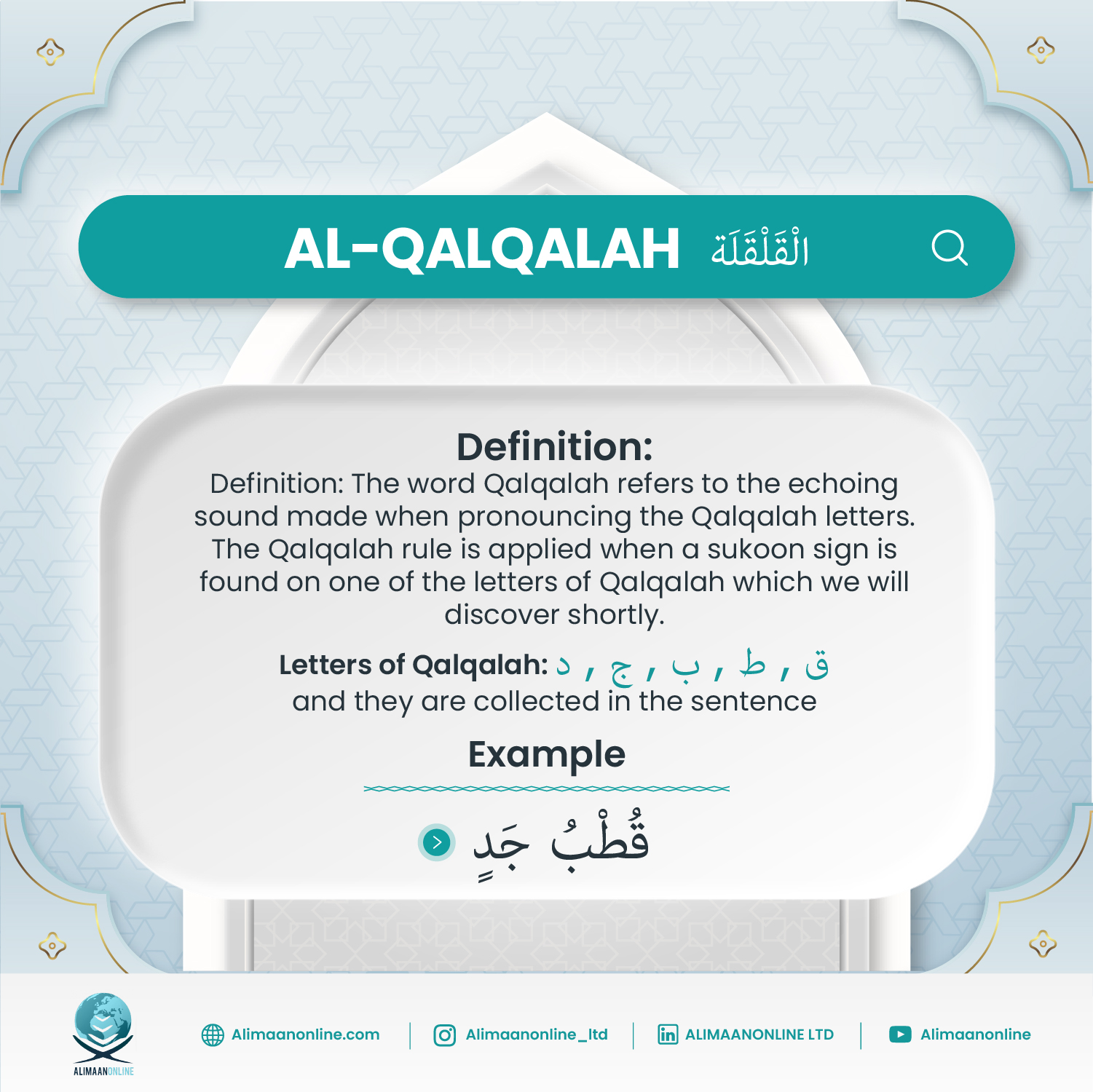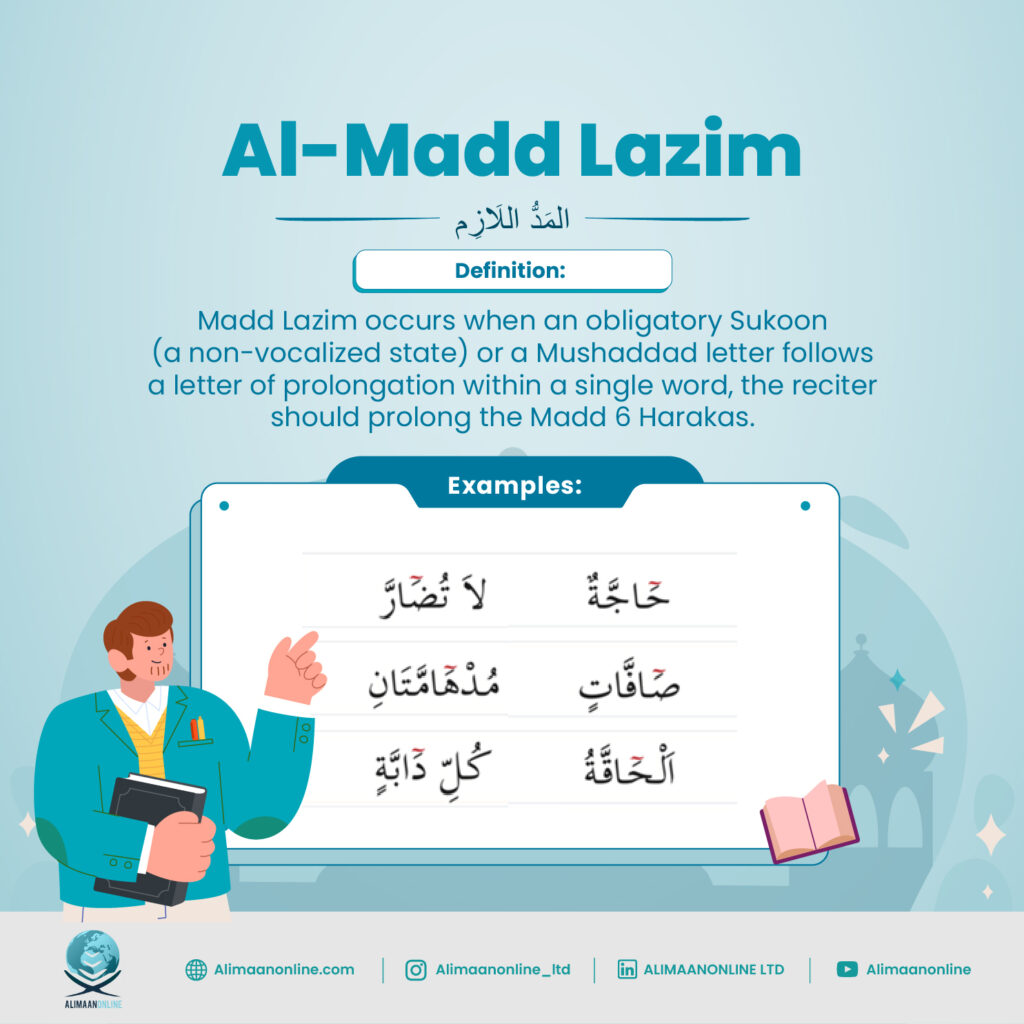Al-Qalqalah-Tajweed lessons
When learning the art of Tajweed, one of the key concepts students encounter is Al-Qalqalah. Tajweed, the proper pronunciation of the letters when reciting the Quran, ensures that the beauty and meaning of the words are preserved. Al-Qalqalah plays an important role in enhancing the clarity of specific sounds, making the recitation more impactful. In […]
Al-Qalqalah-Tajweed lessons Read More »










